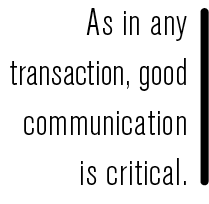Experts offer strategies to help clients who need to buy their next home before the sale of their original home is final
By Myrna Traylor
There are many reasons why a seller might want to secure the purchase of a new primary home before selling their current residence.
It may have to do with not wanting to uproot kids before the end of a school year, having to be in a location for a new job, waiting on new construction to be completed or just having found the perfect house and not wanting to risk losing it. No matter what the reason, agents must be prepared to help sellers make the best financial decisions and practical arrangements for all parties involved.
While this scenario may only come up a few times per year, it helps to know what options are available to the client you are working with.
Buy with cash
Carl Medford, CRS, founder and CEO of the Medford Real Estate Team, operates in the San Francisco Bay Area with its stratospheric home prices. He says that the ideal position for a client is to have the cash to buy the new home outright. “While that doesn’t work so well in regions like the San Francisco Bay Area with its ridiculously high prices,” says Medford, “across most of the country, if people have any kind of significant investment portfolio, then usually there’s a way to pull that cash out short term and buy the new home. Then, when they sell the existing home, put that cash back. Or some people simply have savings. There’s a huge amount of disposable cash out there right now. It’s mind-blowing, actually. Many people have been sitting tight since COVID-19; they haven’t been going anywhere or spending their money on anything. Just popping it into savings or investments.”
Medford also points out that unless the client has other pressing reasons to get into the new property, market conditions are a major consideration when evaluating if one should sell first or buy first.
“In a declining market or a buyer’s market, because the chances of them selling their home are not that great and there’s tons of inventory out there for them to choose from, we recommend that they get into escrow first and then get out there and buy a replacement property,” he says.
Medford says that in those conditions, “you’ve got a lot of sellers out there who are desperate to sell and willing to negotiate, so get your existing home in escrow first because that’s going to be the hardest thing to do.”
Contingencies can help
Margaret Rome, CRS, broker/owner at HomeRome Realty in Baltimore, Maryland, advises sellers to use contingencies to address their preferences. For people who are reluctant to move out of their current home, she suggests “what I call a ‘reverse contingency.’ I say let’s put your home on the market. Let’s make the contingency, ‘subject to finding your home of choice,’” Rome says. “You have to word that carefully because if you just put in ‘finding a home,’ it’s not going to work—so, your home of choice. Now, I can tell you that other agents do not like this, but it works beautifully when someone can’t move twice.”
Rome says that since this kind of contingency may be undesirable for the seller of the new home, it’s incumbent on you as the agent to discover just how serious your client is about not moving into temporary digs. “I have a way of finding that out,” she says. “Let’s say that they’ve got a house to sell, which should sell for about $500,000, and they tell you, ‘I’m not moving twice.’ You then ask, ‘What if somebody came along and offered you a million dollars?’ and you wait quietly for their answer. There are some who would say, ‘I don’t care how much it is. I am not moving. I’m not putting myself through that. I won’t move twice for any amount.’ That’s the person who a reverse contingency is for. And the other person, who says, ‘You get me a million dollars for this house, and we’ll go on vacation. We’ll pack up and move to an apartment.’ So, the first thing is finding out your client’s motivation.”
In addition, Rome urges listing agents working with clients who are staying put until a certain date to be sure to notify the buyers’ agents of the situation to prevent frustration. “I talk to the buyer’s agent and ask how soon they need the house or if they can wait. If they say ‘No, they need it right away,’ I tell them, ‘Please don’t come to see this house.’”
Managing the incoming buyer
Let’s say your client, Alex, has purchased their new home but isn’t ready to take possession for three months. Meanwhile, you have found a buyer, Blanca, for Alex’s current residence, and it is going to close in 14 days. If the stars align, Blanca might be persuaded to lease back that home to Alex for a reasonable monthly fee. Mark Handlovitch, CRS, associate broker for RE/MAX Real Estate Solutions in Pittsburgh, Pennsylvania, addressed a similar scenario recently. “I just did that for a transaction we closed on yesterday. And the way that worked was it was a cash buyer, and we were able to lease the property back to the seller because he’s building a new construction, which won’t be ready until the end of July.”
 Handlovitch also has the advantage of working with a property management company, so he is also able to offer residential units to accommodate either Alex or Blanca during the transition period. “We have luxury units, condos, townhouses and single-family homes, and we allow people to move into some of those in the interim. In a situation where somebody is in a lease and they’re looking to buy your home and you’re not moving out, but their lease is up, we try to negotiate lease extensions with their current management company,” he says.
Handlovitch also has the advantage of working with a property management company, so he is also able to offer residential units to accommodate either Alex or Blanca during the transition period. “We have luxury units, condos, townhouses and single-family homes, and we allow people to move into some of those in the interim. In a situation where somebody is in a lease and they’re looking to buy your home and you’re not moving out, but their lease is up, we try to negotiate lease extensions with their current management company,” he says.
As in any transaction, good communication is critical. Keeping all parties apprised of the options on the table will help the process go more smoothly and earn your client’s gratitude.
Explore Financing Options
The biggest factor determining if a client can get into a two-home scenario is their financing. Unless the client can pay the full price in cash, they will have to get money from somewhere to secure the new home. Here are some options:
Bridge loan—These short-term loans can be used for the down payment, but they are usually offered at a higher
interest rate. Clients should sell their home as quickly as possible to pay this off and get a new mortgage with more favorable terms.
HELOC—By using the equity in the current home for a home equity line of credit, the client may be able to apply this to the down payment on the new home. But this will affect their debt-to-income ratio for the new mortgage, so look at this option carefully.
Gift money from family—In a 2022 article for Inman, Carl Medford, CRS, founder and CEO of the Medford Real Estate Team in the San Francisco Bay Area, included this option, saying, “There are parents or relatives out there who may be willing to front the funds required to facilitate the new purchase. They may either have available cash or be willing to obtain a HELOC or borrow from investment funds.”
Loan “recast”—A seller who is approved for a mortgage purchases the new home and when their old home sells, they apply the monies to the new mortgage balance and the lender does a one-time “recast.” Mark Handlovitch, CRS, associate broker with RE/MAX RE Solutions in Pittsburgh, Pennsylvania, discusses this option. “It doesn’t affect their rate; however it knocks their payment down to a manageable amount if not eliminating it completely,” he says.
Earnest money—Ryan Rohlf, CRS, REALTOR® with Keller Williams Legacy Group in Des Moines, Iowa, offers another possibility for the client who needs to buy before they sell—for a job move from Colorado to Iowa, for example. “Is there a way to put down more— a higher, nonrefundable, earnest money deposit? I think if the people who are selling where they’re moving to are open to it, they say, ‘We know you’re essentially doing “subject to sale” and trying to take this house off the market or having a longer closing period.’ So, that’s just all part of the negotiation.”
Become an expert with our Advanced Residential Home Buyers’ Agent Certificate at CRS.com/certifications.
Photo: iStock.com/5second/3D_generator/Yevhenii Dubinko








